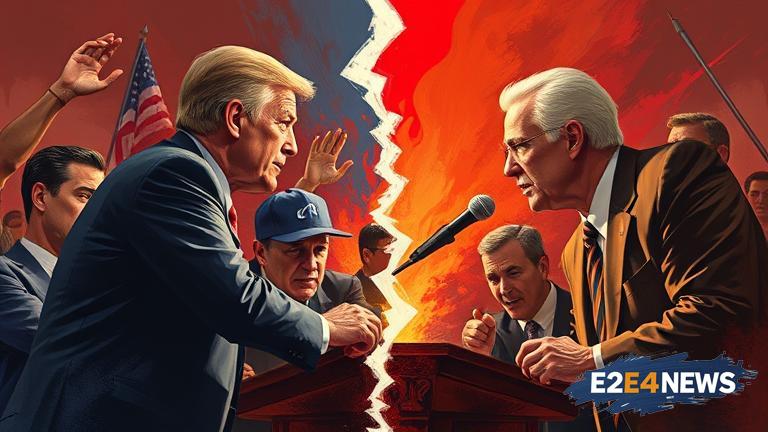The Democratic Party is once again embroiled in a heated debate, this time over the contentious issue of school vouchers. The disagreement has sparked a fierce discussion among party members, with some vehemently opposing the idea and others advocating for its potential benefits. School vouchers, which allow students to attend private schools using public funds, have long been a topic of controversy in the United States. Proponents of vouchers argue that they provide low-income families with greater access to quality education, while opponents claim that they drain resources from already underfunded public schools. The debate has been further complicated by the fact that some Democratic lawmakers have expressed support for voucher programs, despite the party’s traditional stance against them. This has led to accusations of hypocrisy and sparked concerns that the party is losing its commitment to public education. On the other hand, some Democrats argue that vouchers can be a useful tool in improving educational outcomes, particularly in areas where public schools are struggling. They point to examples of successful voucher programs in other countries, such as Sweden and the Netherlands, where they have been used to increase access to quality education. However, others counter that these programs are not directly comparable to the US context and that vouchers would ultimately exacerbate existing inequalities in the education system. The issue has also raised questions about the role of government in education and the balance between public and private provision. Some argue that vouchers represent a form of privatization, which could undermine the public education system and create a two-tiered system where only those who can afford it have access to quality education. Others see vouchers as a means of increasing competition and driving innovation in education, which could ultimately benefit all students. The debate has been fueled by recent studies and reports, which have highlighted the complexities of the issue and the need for a nuanced approach. For example, a recent report by the National Center for Education Statistics found that students who used vouchers to attend private schools performed better on average than their peers in public schools. However, the report also noted that the benefits of vouchers were not evenly distributed and that some students, particularly those from low-income backgrounds, may not have access to the same opportunities. As the debate continues to unfold, it is clear that there are no easy answers and that the issue of school vouchers will remain a contentious one for the Democratic Party. The party’s leadership will need to navigate the complex web of opinions and interests in order to find a way forward that balances the competing demands of its members. This may involve finding common ground and identifying areas of agreement, such as the need to improve access to quality education for all students. Ultimately, the outcome of the debate will have significant implications for the future of education in the United States and the role of the Democratic Party in shaping it. The party’s stance on vouchers will be closely watched by educators, policymakers, and the general public, and will likely influence the direction of education policy in the years to come. As the country continues to grapple with the challenges of providing high-quality education to all students, the debate over school vouchers serves as a reminder of the complexities and trade-offs involved in education policy. While there are no easy solutions, it is clear that the Democratic Party must find a way to address the issue in a way that is consistent with its values and commitments. This will require careful consideration of the evidence, a willingness to listen to different perspectives, and a commitment to finding solutions that benefit all students, regardless of their background or circumstances. The future of education in the United States depends on it.





